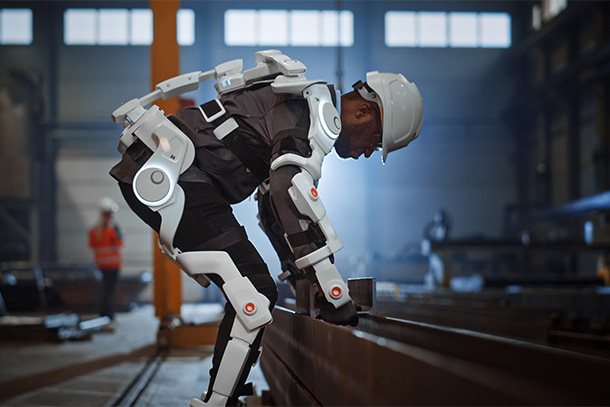
A National Science Foundation grant will enable a team of researchers to study the physical, psychological and sociotechnical risks to construction workers from powered wearable exoskeletons, such as the one shown here. iStock: Gorodenkoff
One robot-assisted step closer to construction safety with NSF grant
Penn State researchers to use National Science Foundation grant to assess risks and challenges to using robotic exoskeletons for construction worker safety
October 14, 2022
By Sarah Small
UNIVERSITY PARK, Pa. — Wearable robots could reduce injuries among construction workers by providing life support, weight dispersion and posture correction, but the risks and challenges of using them on job sites remain largely unknown, according to Houtan Jebelli, assistant professor of architectural engineering in the Penn State College of Engineering. A three-year, $675,000 National Science Foundation grant will enable a team of researchers from Penn State and Virginia Tech, led by principal investigator (PI) Jebelli, to study the physical, psychological and sociotechnical risks of powered wearable exoskeletons to construction workers.
Jebelli with work with co-PIs Anne Martin, associate professor of mechanical engineering at Penn State, and Susan Simkins (formerly Mohammed), professor of psychology in the College of Liberal Arts at Penn State, to first identify barriers to and facilitators of the adoption of this technology in the construction field. They will then use virtual reality to simulate construction-related tasks performed using the robotic exoskeletons. Lastly, they will design a worker-centered risk assessment framework to evaluate both psychological and physical risks.
“This third thrust will integrate artificial intelligence and objective evaluations to develop a new interpretive pipeline between physiological and psychophysiological data with local muscular fatigue, fall risk, joint hyperextension, cognitive workload, trust and vigilance of workers during the construction tasks,” Jebelli said.



